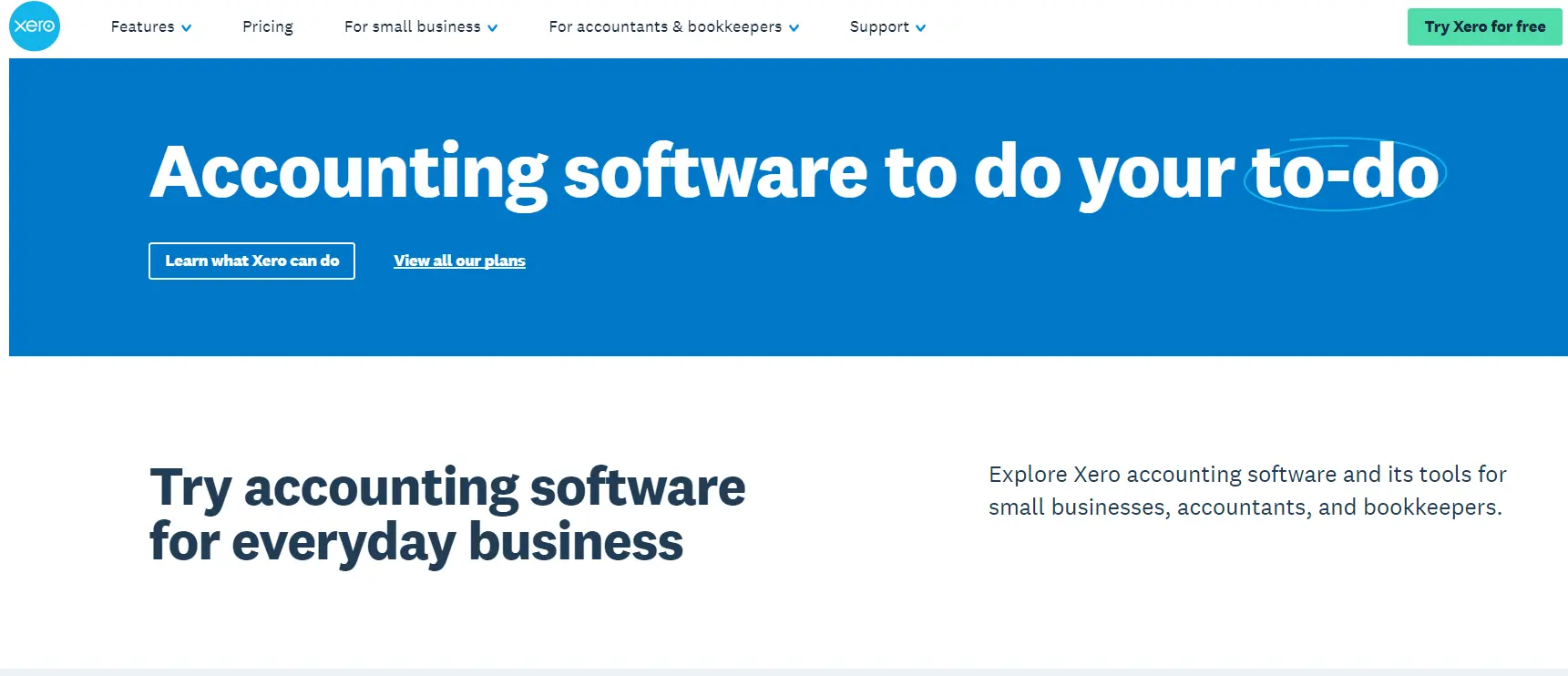Accounting for Global Companies: All you need to know (2024)

In an increasingly interconnected world, businesses are expanding their reach beyond borders, giving rise to a new era of global companies. As these organizations grow and operate across different countries, they encounter unique accounting challenges that demand specialized knowledge and strategies. This blog will delve into the realm of global accounting, exploring its significance and the various accounting standards that shape financial reporting. We’ll also uncover the hurdles faced by international enterprises, such as currency fluctuations, diverse tax laws, and compliance issues. But fear not, we’ll also present solutions to navigate these complexities, including leveraging technology, building a global accounting team, and implementing robust compliance programs. Furthermore, we’ll highlight some of the best global accounting software available to streamline these processes. Join us on this journey to demystify the world of accounting for global companies in 2024.
What is global accounting?
Global accounting refers to the specialized accounting practices and principles adopted by multinational corporations that conduct business operations across different countries and jurisdictions. As these companies expand their reach globally, their financial transactions become more intricate and subject to various legal, regulatory, and cultural differences. Global accounting aims to consolidate and streamline these diverse financial activities, ensuring accurate and transparent reporting to stakeholders, investors, and regulatory bodies.
At its core, global accounting involves the coordination and harmonization of financial data from various subsidiaries and branches located in different parts of the world. This process entails consolidating financial statements, reconciling currency differences, and adhering to the applicable accounting standards of each region.
A key aspect of global accounting is its role in facilitating decision-making for top management. It provides a comprehensive view of the company’s financial health, performance, and risks, enabling leaders to make informed strategic choices.
Moreover, global accounting practices focus on compliance with international accounting standards to ensure consistency and comparability in financial reporting. This often involves working with multiple accounting frameworks such as Generally Accepted Accounting Principles (GAAP) or International Financial Reporting Standards (IFRS).
In summary, global accounting serves as the financial backbone of multinational corporations, offering a unified and standardized approach to financial reporting, facilitating decision-making, and ensuring compliance with regulations across borders. As global business complexities continue to evolve, the significance of robust global accounting practices becomes even more vital for the sustained success of multinational enterprises.
Why is it important for global companies?
Global accounting holds immense importance for multinational or global companies due to several compelling reasons.
Consolidated Financial Reporting: With operations spread across multiple countries, global companies need to consolidate financial data from various subsidiaries and branches. Global accounting facilitates this process, providing a holistic view of the company’s financial performance, enabling better-informed decision-making.
Compliance with International Standards: Different countries have their own accounting standards, such as GAAP and IFRS. Global accounting ensures that the company complies with relevant international accounting standards, fostering transparency and consistency in financial reporting.
Stakeholder Confidence: Transparent and standardized financial reporting instills confidence in stakeholders, including investors, creditors, and regulators. This, in turn, improves the company’s credibility and access to capital in global markets.
Risk Management: Multinational companies face diverse risks, including currency fluctuations, geopolitical uncertainties, and regulatory changes. Global accounting helps identify and assess these risks, enabling proactive risk management strategies to mitigate potential adverse impacts.
Tax Efficiency: Global companies must navigate complex international tax laws and regulations. Proper accounting practices help optimize tax planning and compliance, leading to potential cost savings and reduced tax risks.
Strategic Decision-making: Accurate and timely financial information is crucial for making informed strategic decisions. Global accounting provides essential data for evaluating the performance of different business units and identifying growth opportunities.
Resource Allocation: Understanding the financial performance of subsidiaries worldwide allows for efficient allocation of resources, ensuring investments are channeled to the areas with the highest potential return.
Global accounting serves as a vital tool for multinational companies, facilitating efficient financial management, compliance with international standards, risk mitigation, and strategic planning. As businesses continue to expand globally, the importance of robust global accounting practices becomes increasingly essential for sustained growth and success in the global marketplace.
The different accounting standards
The global accounting landscape is shaped by various accounting standards, each influencing how companies prepare and present their financial statements. Let’s explore the three major accounting standards commonly adopted by global companies:
1. Generally Accepted Accounting Principles (GAAP):
GAAP is a set of accounting principles, standards, and procedures followed primarily in the United States. The Financial Accounting Standards Board (FASB) is responsible for establishing and updating GAAP. These principles provide a comprehensive framework for financial reporting, covering aspects like revenue recognition, asset valuation, and financial statement presentation. GAAP is rules-based, offering specific guidelines and detailed regulations to account for various transactions. While it is widely followed in the U.S., some other countries may also have their local GAAP, leading to potential challenges for multinational companies operating in multiple jurisdictions.
2. International Financial Reporting Standards (IFRS):
IFRS is a globally accepted set of accounting standards, developed and maintained by the International Accounting Standards Board (IASB). IFRS aims to provide a common language for financial reporting across different countries, promoting transparency and comparability of financial statements. Unlike GAAP, IFRS is principles-based, focusing on overarching concepts rather than specific rules. This principles-based approach allows for more flexibility and judgment in financial reporting, catering to the diverse business practices and legal requirements of various countries. IFRS is widely adopted in many parts of the world, especially in Europe and several emerging economies.
3. Other Regional Accounting Standards:
In addition to GAAP and IFRS, various countries and regions have their own unique accounting standards. For example, countries in Japan follow the Japanese Generally Accepted Accounting Principles (JGAAP), Germany has the German Commercial Code (HGB), and China adheres to Chinese Accounting Standards (CAS). These regional accounting standards can significantly differ from both GAAP and IFRS, creating challenges for global companies with operations in these regions.
Harmonizing accounting standards globally has been an ongoing effort, and while progress has been made, differences persist. This diversity in accounting standards can lead to complexities for global companies when preparing consolidated financial statements. To address these challenges, many multinational corporations undertake extensive efforts to reconcile financial data under various accounting frameworks and provide detailed disclosures about the differences in accounting policies.
The existence of different accounting standards, such as GAAP, IFRS, and other regional standards, underscores the need for global companies to have a thorough understanding of the accounting requirements in each jurisdiction where they operate. This understanding enables accurate and transparent financial reporting, supporting the company’s compliance efforts and fostering trust among stakeholders in an increasingly interconnected global economy.
What are the challenges of global accounting?
Global accounting presents a range of challenges for multinational companies, arising from the complexities of operating across diverse international markets. Let’s delve into some of the significant challenges faced by global accounting:
Currency fluctuations:
Currency exchange rates are subject to constant fluctuations, impacting the translation of financial data from subsidiaries located in different countries. When consolidating financial statements, these currency fluctuations can lead to significant changes in reported figures, affecting the company’s financial performance and balance sheet. Managing foreign exchange risk becomes crucial to minimize the impact of currency fluctuations on financial reporting.
Different tax laws:
Each country has its own tax regulations and laws that govern how companies are taxed on their income, expenses, and profits. Complying with multiple tax jurisdictions can be intricate and demanding for global companies. Transfer pricing, for instance, becomes a critical concern when transactions occur between related entities in different tax jurisdictions. Navigating the complexities of global taxation while optimizing tax efficiency requires careful planning and expertise.
Accounting for foreign subsidiaries:
Global companies often have subsidiary entities in various countries, each following different accounting standards and reporting requirements. This necessitates the consolidation of financial statements across different accounting frameworks, adding complexity to the financial reporting process. Harmonizing financial data from various subsidiaries can be time-consuming and challenging, especially when accounting principles differ significantly.
Compliance with regulations:
Operating in multiple jurisdictions means adhering to a myriad of local and international regulations, including accounting, tax, and financial reporting requirements. Staying compliant with these diverse regulations is a substantial undertaking that demands in-depth knowledge of each country’s legal landscape. Failure to meet regulatory obligations can result in penalties, reputational damage, and legal consequences.
Cultural and Language Differences:
Effective communication is crucial in global accounting, but language barriers and cultural differences can impede clear communication and understanding between teams in different regions. Misinterpretation of financial information can lead to errors in reporting and decision-making.
Data Security and Privacy:
Global companies often transmit financial data across borders, which raises concerns about data security and compliance with data privacy regulations. Protecting sensitive financial information and ensuring compliance with various data protection laws is essential to prevent data breaches and maintain stakeholder trust.
How to overcome the challenges of global accounting
Overcoming the challenges of global accounting requires a combination of strategic approaches, leveraging technology, building a global accounting team, and implementing a strong compliance program. Let’s explore each of these solutions in detail:
1. Technology:
In the digital age, technology plays a pivotal role in streamlining global accounting processes. Implementing advanced accounting software and enterprise resource planning (ERP) systems can automate routine financial tasks, facilitate data consolidation, and ensure accuracy in reporting. Cloud-based accounting solutions offer the advantage of real-time data access and collaboration across geographically dispersed teams. Additionally, such software often comes equipped with features to handle multiple currencies and comply with various accounting standards, easing the complexities associated with currency fluctuations and differing reporting requirements.
Moreover, data analytics tools can be employed to gain insights into financial performance and identify trends and anomalies, enabling proactive decision-making. Integrating technology into the accounting workflow not only enhances efficiency but also reduces the risk of errors and improves overall data security.
2. A global accounting team:
Assembling a competent global accounting team is essential for addressing the diverse challenges of multinational financial reporting. This team should consist of skilled accountants and finance professionals with expertise in international accounting standards, local regulations, tax laws, and foreign exchange management. Cross-cultural communication and language proficiency are valuable assets when dealing with subsidiaries in different regions.
A strong global accounting team ensures that financial data is accurately consolidated, and accounting practices are harmonized across various jurisdictions. Regular training and professional development programs keep the team updated on changing accounting standards and compliance requirements worldwide, fostering continuous improvement in financial reporting.
3. A strong compliance program:
Developing and implementing a robust compliance program is critical to address the complex regulatory environment faced by global companies. This program should encompass a comprehensive understanding of international accounting standards, tax regulations, and reporting requirements in each country of operation.
A compliance officer or team should closely monitor changes in regulations and ensure that the company’s financial practices align with legal requirements. Regular internal audits can identify areas of non-compliance or potential risks, enabling timely corrective actions.
Investing in a strong compliance program not only reduces the risk of legal and financial repercussions but also demonstrates the company’s commitment to ethical financial practices, strengthening stakeholder trust and confidence.
By combining technology, a capable global accounting team, and a robust compliance program, multinational companies can navigate the challenges of global accounting effectively. This integrated approach ensures accurate and transparent financial reporting, enhances decision-making capabilities, and positions the organization for sustained success in the global marketplace. As the business landscape continues to evolve, companies that prioritize their global accounting strategies will be better equipped to thrive in an increasingly interconnected and competitive world.
4 Best Global Accounting Software
Selecting the right accounting software is crucial for global companies to efficiently manage their finances across diverse jurisdictions. Here are the four best global accounting software options:
mesha:

Mesha is an all-in-one accounting solution designed for multi-entity businesses, CFOs, and accountants to track income, expenses, transactions, and taxes globally. It offers real-time strategic insights to power financial decisions and has garnered a high G2 star rating for user satisfaction. Mesha stands out with its seamless integration with more than 10,000 banks and leading cards, payroll, CRM, payment, and accounting solutions. The software is powered by AI, enabling users to gain deeper insights into financial data and get instant answers to financial queries. With support for over 100 currencies and the ability to assign different reporting currencies to local entities, Mesha provides excellent multi-currency support. Its intuitive interface and automated features make it a trusted choice for businesses worldwide.
QuickBooks Online:

QuickBooks Online is a popular cloud-based accounting software that caters to businesses of all sizes, including global companies. It offers a range of features such as income and expense tracking, invoicing, bank reconciliation, and financial reporting. QuickBooks Online supports multiple currencies and allows users to manage transactions and financial data from various locations seamlessly. Its user-friendly interface and mobile app make it convenient for businesses with remote teams. The software also offers integrations with a wide range of third-party applications, enhancing its functionality and adaptability to different business needs.
Xero:

Xero is another cloud-based accounting software widely used by global companies. It provides comprehensive accounting and bookkeeping tools, including bank reconciliation, invoicing, expense tracking, and financial reporting. Xero’s multi-currency support allows businesses to manage transactions and finances in different currencies effortlessly. The software’s powerful integration capabilities enable users to connect with various applications, such as payment gateways, payroll providers, and CRM systems. Xero’s real-time data and collaboration features make it a valuable tool for businesses with international operations.
NetSuite ERP:

NetSuite ERP is a robust enterprise resource planning software that includes powerful accounting features. It is ideal for larger global companies with complex accounting needs. NetSuite offers a unified platform that integrates financial management with other critical business functions, such as inventory management, order processing, and customer relationship management. The software provides multi-currency support and allows for consolidated financial reporting across multiple subsidiaries and entities. NetSuite’s scalability and customizability make it suitable for businesses with significant growth potential and diverse global operations.
Selecting the best global accounting software is a crucial decision for multinational companies. Mesha stands out as a comprehensive solution with real-time insights, seamless integration, and multi-currency support. QuickBooks Online, Xero, and NetSuite ERP also offer robust features and are widely recognized for their effectiveness in managing finances for global businesses. Assessing the specific accounting needs, scalability, and compatibility with existing systems can help businesses make an informed choice and find the best accounting software to optimize their financial management on a global scale.
Conclusion
Accounting for global companies is a complex but essential aspect of navigating the international business landscape. From managing diverse accounting standards to overcoming currency fluctuations and compliance challenges, global accounting demands a strategic approach. Leveraging technology, building a skilled global accounting team, and implementing strong compliance programs are vital steps to ensure accurate financial reporting and informed decision-making. mesha, QuickBooks Online, Xero, and NetSuite ERP stand out as the best global accounting software, each offering unique features to cater to the diverse needs of multinational businesses. Embracing these solutions empowers companies to thrive and succeed in the interconnected world of global business.


